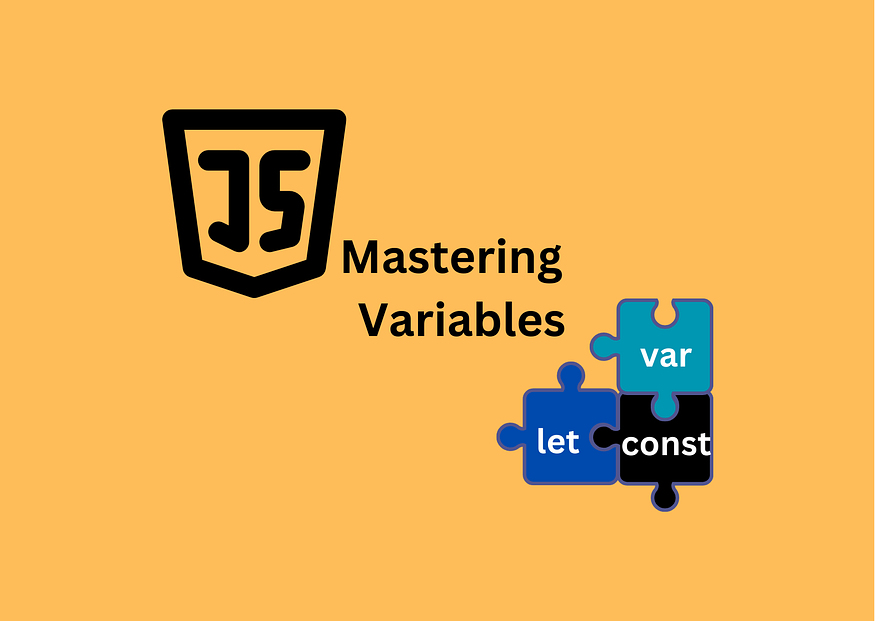Title: Mastering JavaScript Variables: const, let, and var
Table of contents
In the world of JavaScript, understanding the nuances of variables is paramount. JavaScript offers three distinct types of variables: const, let, and var. Each serves a unique purpose, and gaining mastery over them can significantly enhance your coding prowess.

The Power of const
The const keyword is a formidable tool in JavaScript’s arsenal. When you declare a variable using const, you’re essentially stating that its value remains fixed throughout its lifetime. Imagine, for instance, needing to store unchanging information, such as the gender of a customer. In such cases, const comes to the rescue, ensuring the immutability of your variables.
const gender = 'female'; // Example of a constant variable
console.log(gender) // print female in console
gender='male' // Uncaught TypeError:Assignment to constant variable
Optimizing with let and var
However, not all variables are as steadfast as the constants. Consider a scenario where you need to perform complex calculations, like computing a student’s final grade. You may start by calculating test scores and then factor in attendance and extracurricular activities. In such situations, declaring multiple constant variables could lead to unnecessary memory consumption.
This is where let and var come into play. They allow you to create variables that can change their values as needed. But here’s the twist: there’s a difference between the two.
- let doesn’t support hoisting, which means you must declare it before using it to avoid what’s known as a Temporal Dead Zone.
console.log(subject); // Uncaught RefernceError:subject is not defined
let subject = "JavaScript";
On the other hand, var does support hoisting, as it’s hoisted to the top of its containing function or block. However, there’s an interesting behavior with var that you should be aware of. At the compilation stage, var variables get allocated but remain undefined until the statement of initialization. This means that if you try to access a var variable before it’s initialized, it will be undefined.
console.log(subject);// print undefined
var subject= "JavaScript"
By skillfully utilizing let and var, you can strike a balance between memory efficiency and flexibility in your code.
In conclusion, mastering JavaScript variables — const, let, and var is crucial for becoming a proficient developer. These tools empower you to manage your data effectively, whether it’s ensuring the integrity of unchanging values, or optimizing memory usage with let and var. So, embrace these variable types, and watch your JavaScript skills flourish.
If you found this blog post helpful, please consider sharing it with others who might benefit. You can also follow me for more content on Javascript and other web development topics.
About me:
I am a Software Development Engineer who loves to talk about tech stuff.
Feel free to reach out to me on LinkedIn or Twitter.
Thank you for reading this article 💛 and see you in the next one.